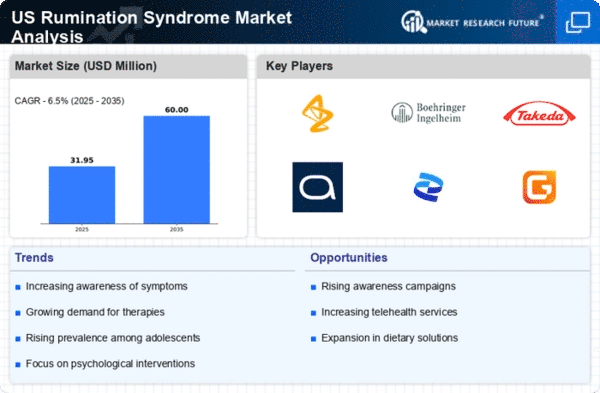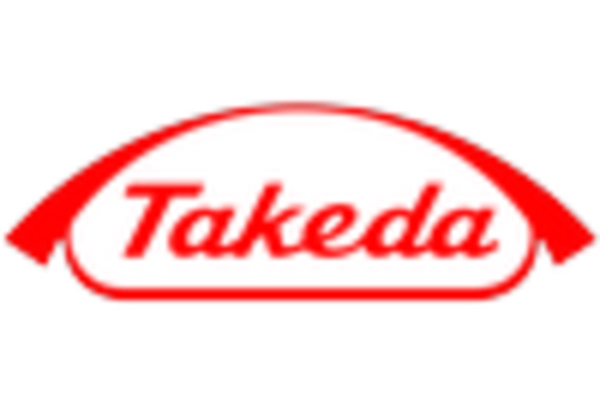Increased Focus on Mental Health
The rumination syndrome market is influenced by the growing emphasis on mental health awareness in the US. As mental health issues are increasingly recognized as critical components of overall health, conditions like rumination syndrome, which may have psychological underpinnings, are receiving more attention. This shift is leading to a greater understanding of the interplay between psychological factors and gastrointestinal disorders. Consequently, healthcare providers are more likely to incorporate psychological assessments into treatment plans for patients with rumination syndrome. This holistic approach may enhance treatment efficacy and drive growth in the rumination syndrome market, as patients seek comprehensive care that addresses both physical and mental health aspects.
Advancements in Diagnostic Techniques
The rumination syndrome market is benefiting from advancements in diagnostic techniques that enhance the identification of this condition. Improved diagnostic tools, such as high-resolution manometry and pH monitoring, allow for more accurate assessments of gastrointestinal motility disorders. These innovations facilitate earlier detection and intervention, which is crucial for effective management of rumination syndrome. As healthcare providers become more adept at diagnosing this condition, the rumination syndrome market is expected to grow. The integration of technology in diagnostics not only streamlines the process but also increases the likelihood of successful treatment outcomes, thereby attracting more patients to seek care.
Rising Incidence of Rumination Syndrome
The rumination syndrome market is experiencing growth due to an observed increase in the incidence of this condition across various demographics in the US. Recent studies indicate that rumination syndrome affects approximately 1-3% of the population, with higher prevalence noted among children and adolescents. This rising incidence is prompting healthcare providers to seek effective treatment options, thereby driving demand within the rumination syndrome market. As awareness of the condition grows, more patients are being diagnosed, leading to an increased need for specialized care and therapeutic interventions. The market is likely to expand as healthcare systems adapt to address this growing patient population, which may include the development of targeted therapies and support programs.
Development of Targeted Therapeutic Options
The rumination syndrome market is poised for growth due to the development of targeted therapeutic options tailored to the specific needs of patients. Recent research has focused on creating therapies that address the underlying mechanisms of rumination syndrome, such as behavioral interventions and pharmacological treatments. These targeted approaches are designed to improve patient outcomes and reduce the frequency of episodes. As more effective treatment options become available, healthcare providers are likely to adopt these therapies, thereby expanding the rumination syndrome market. The potential for personalized medicine in this area may further enhance patient engagement and adherence to treatment regimens.
Supportive Care and Patient Education Initiatives
Supportive care and patient education initiatives are driving the rumination syndrome market. Healthcare organizations are increasingly recognizing the importance of educating patients and their families about rumination syndrome, its causes, and management strategies. These initiatives aim to empower patients, improve self-management, and reduce stigma associated with the condition. By fostering a better understanding of rumination syndrome, healthcare providers can enhance treatment adherence and patient satisfaction. This focus on education and support is likely to contribute to the growth of the rumination syndrome market, as informed patients are more likely to seek and engage in effective treatment options.
















